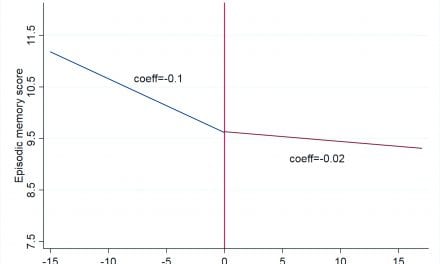Hearing loss affects approximately 48 million Americans. Some evidence suggests that diet may influence risk of hearing loss. Previous studies have looked at how specific nutrients affect risk, but the relation of overall diet and risk of developing hearing loss was unclear.
In a new study, researchers from Brigham and Women’s Hospital examined the relation between three different diets and risk of developing hearing loss: The Alternate Mediterranean diet (AMED), Dietary Approaches to Stop Hypertension (DASH), and the Alternative Healthy Eating Index-2010 (AHEI-2010) in 70,966 women in the Nurses’ Health Study II who were followed for 22 years. Researchers found that eating a healthy diet is associated with a lower risk of acquired hearing loss in women, the hospital announced on its website. Results were published in the Journal of Nutrition on May 11.
“Interestingly, we observed that those following an overall healthy diet had a lower risk of moderate or worse hearing loss,” said Sharon Curhan, MD, an epidemiologist in the Channing Division of Network Medicine at BWH, and first author of the study. “Eating well contributes to overall good health, and it may also be helpful in reducing the risk of hearing loss.”
In this longitudinal study, researchers collected detailed information on dietary intake every four years and found that women whose diets most closely resembled the AMED or DASH dietary patterns had an approximately 30% lower risk of moderate or worse hearing loss, compared with women whose diets resembled these dietary patterns the least. Moreover, findings in a sub-cohort of over 33,000 women for whom detailed hearing-related information had been collected suggest that the magnitude of the reduced risk may be even greater than 30%, and may also pertain to the AHEI-2010. The AMED diet includes extra virgin olive oil, grains, legumes, vegetables, fruits, nuts, fish, and moderate intake of alcohol. The DASH diet is high in fruits and vegetables and low-fat dairy, and low in sodium. The AHEI-2010 diet has common components with AMED and DASH.
Assessment of hearing loss was based on self-report. Researchers say further research in additional populations is warranted.
This study was supported by NIH grants DC 010811 and UM1 CA 176276.
Original Paper: Curhan SG, Wang M, Eavey RD, Stampfer MJ, Curhan GC. Adherence to healthful dietary patterns is associated with lower risk of hearing loss in women. The Journal of Nutrition. May 11, 2018. Available at: https://academic.oup.com/jn/advance-article-abstract/doi/10.1093/jn/nxy058/4993343?redirectedFrom=fulltext
Source: Brigham and Women’s Hospital, The Journal of Nutrition
Image: | Dreamstime.com






This article is motivated by other factors and the research may be fake. 60% of hearing loss among females is genetically acquired. Watch out for such articles !
Well…the article was conducted under a grant by NIH (which doesn’t come easy), and the Journal of Nutrition is a peer-reviewed publication. There are many articles that associate hearing loss to poorer health states with various possible reasons, ranging from everything from microvascular changes to social isolation to even lower wage earning potential. Although I would encourage readers to always be vigilant in discerning and questioning what they read, this looks pretty reputable to me.